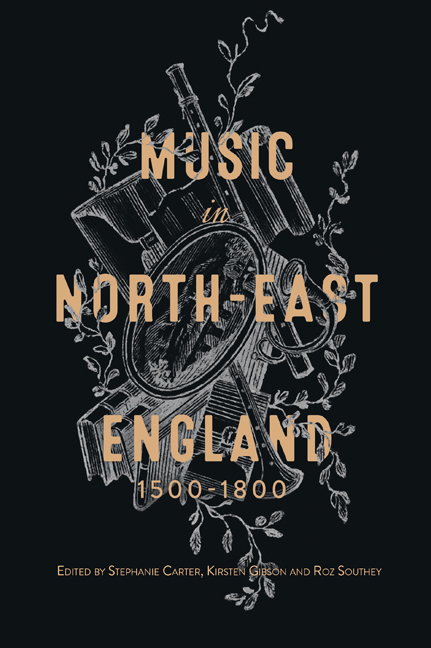9 - Schoolboy Performance in the Post-Reformation North-East
Published online by Cambridge University Press: 17 November 2020
Summary
The performance activities of grammar-school boys in early modern London and its vicinity are relatively well known, particularly regarding students from institutions such as the Merchant Taylors’ school, the Charterhouse and Dulwich College. Yet evidence from account books, diaries, letters, school records and other archival sources indicates that engagement with the performing arts reached far beyond London and its environs. This chapter will consider the evidence for musical instruction of and performance by boys in the North-East of England, particularly Durham, York and Newcastle upon Tyne. These schoolboy performances served various purposes: to entertain important dignitaries and patrons; to allow boys to practise important rhetorical and musical skills; and, perhaps most importantly in persistently Catholic areas of the North-East, to inculcate boys with the Protestant faith through singing.
In compiling archival evidence for this chapter, I could not help but suspect that the surviving historical record for the North-East represents only the tip of the iceberg with regards to schoolboy performance. The quotidian nature of musical instruction is suggested by a woodcut from the time of Elizabeth I (Figure 9.1). The image shows a busy scene. In the foreground one boy is being thrashed while other boys are reading aloud before a schoolmaster. On the back wall there is musical notation on a board. Perhaps school-based musical instruction was as commonplace as the birching of schoolboys, as conjugating Latin verbs before a teacher. As Diana Taylor has demonstrated, the archive is not unmediated – what survives depends on a range of factors, including what people deemed important to save. Access to the archive, moreover, is controlled by classification systems created by other human beings with their own prejudices and priorities. The archive is also mutable: documents might be lost, stolen, purposely or unintentionally sequestered from view. It is possible, for instance, that grammar-school boys performed with regularity, but that it was not considered necessary to preserve the documents that recorded their activities. What follows, then, must be an incomplete account of the ways in which schoolboys in the North-East engaged with the performing arts.
❧ Performing Arts and the Early Modern Grammar School
By the early seventeenth century many communities, including those in the North-East, supported a local grammar school; these institutions had prolif-erated in the sixteenth century and were funded in various ways; generally a wealthy landowner, a clergyman, merchant or yeoman founded the school.
- Type
- Chapter
- Information
- Music in North-East England, 1500–1800 , pp. 175 - 191Publisher: Boydell & BrewerPrint publication year: 2020

